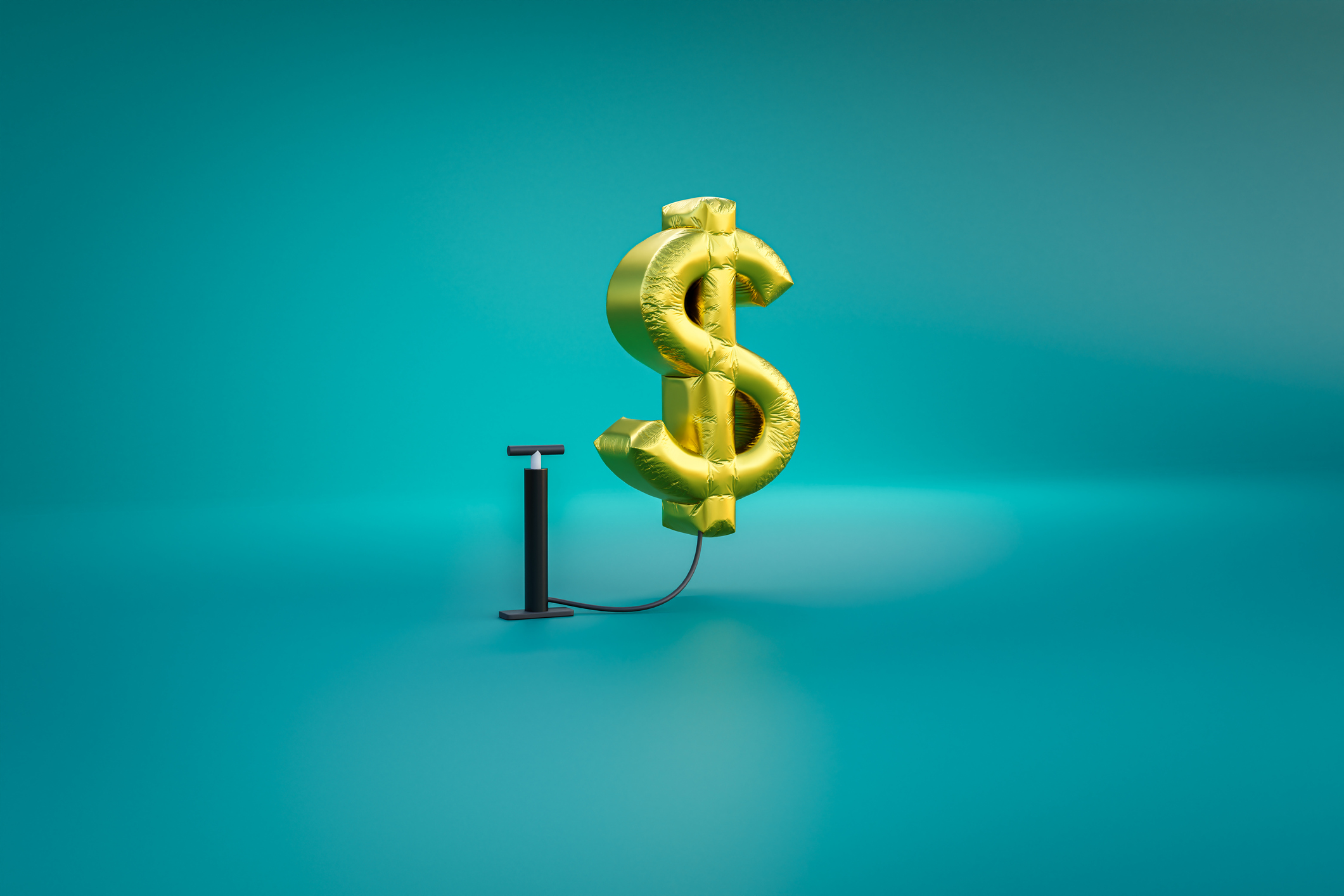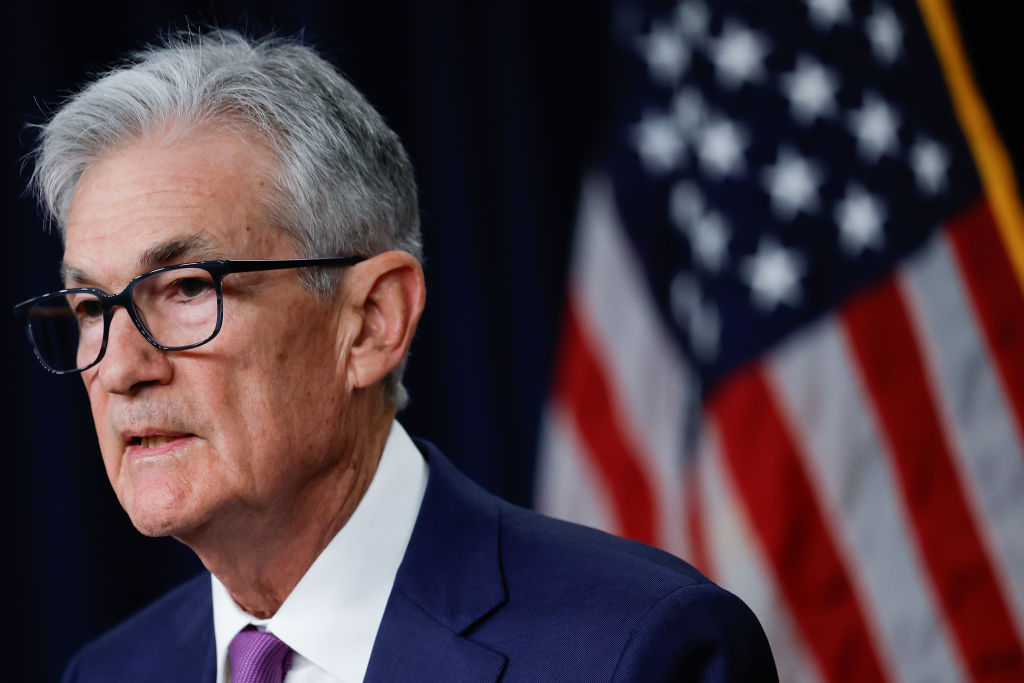6 Things You Need to Know About Paying With Cash
Currency still has its place, despite the pervasive use of plastic.


Profit and prosper with the best of Kiplinger's advice on investing, taxes, retirement, personal finance and much more. Delivered daily. Enter your email in the box and click Sign Me Up.
You are now subscribed
Your newsletter sign-up was successful
Want to add more newsletters?

Delivered daily
Kiplinger Today
Profit and prosper with the best of Kiplinger's advice on investing, taxes, retirement, personal finance and much more delivered daily. Smart money moves start here.

Sent five days a week
Kiplinger A Step Ahead
Get practical help to make better financial decisions in your everyday life, from spending to savings on top deals.

Delivered daily
Kiplinger Closing Bell
Get today's biggest financial and investing headlines delivered to your inbox every day the U.S. stock market is open.

Sent twice a week
Kiplinger Adviser Intel
Financial pros across the country share best practices and fresh tactics to preserve and grow your wealth.

Delivered weekly
Kiplinger Tax Tips
Trim your federal and state tax bills with practical tax-planning and tax-cutting strategies.

Sent twice a week
Kiplinger Retirement Tips
Your twice-a-week guide to planning and enjoying a financially secure and richly rewarding retirement

Sent bimonthly.
Kiplinger Adviser Angle
Insights for advisers, wealth managers and other financial professionals.

Sent twice a week
Kiplinger Investing Weekly
Your twice-a-week roundup of promising stocks, funds, companies and industries you should consider, ones you should avoid, and why.

Sent weekly for six weeks
Kiplinger Invest for Retirement
Your step-by-step six-part series on how to invest for retirement, from devising a successful strategy to exactly which investments to choose.
1. A cashless society? Not so fast.
From PayPal to Bitcoin to Samsung Pay (the newest contender among mobile wallets), advances in payment technology make pocket change look as if it’s headed for the history books. But according to a 2012 study from the Federal Reserve Bank of San Francisco, 40% of an average consumer’s transactions were in cash—more than for debit cards (25%), credit cards (17%), electronic payments (7%) and checks (7%). The number of notes in circulation has grown by about 5% per year since then, says Doug Conover, an author of the study.
2. Currency comes in handy.
Most vending machines don’t take plastic, and cash works best for all small purchases. In the Federal Reserve study, consumers used cash for two-thirds of transactions smaller than $10 and for half of all payments of less than $50. Merchants are legally permitted to refuse plastic for transactions of less than $10, and they may provide a discount to customers who pay with cash. For most people, $50 or so is an adequate amount of cash to keep on hand, says Matt Schulz, senior industry analyst for CreditCards.com.
3. Hamiltons can’t get hacked.
With data breaches of major retailers becoming common, some consumers have turned to cash payments to prevent hackers from obtaining their credit card information. But plastic carries one big benefit that cash doesn’t: If a thief racks up charges on your credit card, you’re protected by the card networks’ zero-liability policies. And banks will most often reimburse you for fraudulent debit card charges.
From just $107.88 $24.99 for Kiplinger Personal Finance
Become a smarter, better informed investor. Subscribe from just $107.88 $24.99, plus get up to 4 Special Issues

Sign up for Kiplinger’s Free Newsletters
Profit and prosper with the best of expert advice on investing, taxes, retirement, personal finance and more - straight to your e-mail.
Profit and prosper with the best of expert advice - straight to your e-mail.
4. A cash fix can cost you.
Use an ATM outside your bank’s network and you’ll pay more than $4, on average, in combined fees to the bank and the ATM’s owner, according to a MoneyRates.com survey. Check your bank’s app or Web site to locate in-network ATMs. Or use a checking account that reimburses ATM surcharges (Ally Bank pays back up to $10 a month). A few banks have introduced ATMs from which customers can get cash by arranging a withdrawal on a smartphone app, then using the app to scan a QR code that the ATM displays—no card required.
5. It’s a great budgeting tool.
If you have trouble controlling your spending when you pay with credit cards, then favoring cash or a debit card is best for your finances. With cash, you can spend only what you have, so you may treat your money more carefully if you see real dollars leaving your hands. Divide the cash into envelopes labeled for each category of your monthly budget—or at least for discretionary purchases such as eating out and shopping. Unfortunately, doing that means you won’t be able to use online tools that automatically track each dollar you spend. But with mobile apps such as GoodBudget and Mvelopes (both are available for Apple and Android devices), you can create virtual envelopes and connect to your bank account to see where the money goes.
6. But it won’t help build your credit history.
Consider using a credit card now and then—perhaps for routine purchases, such as gas, that won’t tempt you to overspend. A history of responsible card usage on your credit record can help you get the best terms on a mortgage or other loan. It may even improve your prospects for getting a job or an apartment rental.
Profit and prosper with the best of Kiplinger's advice on investing, taxes, retirement, personal finance and much more. Delivered daily. Enter your email in the box and click Sign Me Up.

Lisa has been the editor of Kiplinger Personal Finance since June 2023. Previously, she spent more than a decade reporting and writing for the magazine on a variety of topics, including credit, banking and retirement. She has shared her expertise as a guest on the Today Show, CNN, Fox, NPR, Cheddar and many other media outlets around the nation. Lisa graduated from Ball State University and received the school’s “Graduate of the Last Decade” award in 2014. A military spouse, she has moved around the U.S. and currently lives in the Philadelphia area with her husband and two sons.
-
 Look Out for These Gold Bar Scams as Prices Surge
Look Out for These Gold Bar Scams as Prices SurgeFraudsters impersonating government agents are convincing victims to convert savings into gold — and handing it over in courier scams costing Americans millions.
-
 How to Turn Your 401(k) Into A Real Estate Empire
How to Turn Your 401(k) Into A Real Estate EmpireTapping your 401(k) to purchase investment properties is risky, but it could deliver valuable rental income in your golden years.
-
 My First $1 Million: Retired Nuclear Plant Supervisor, 68
My First $1 Million: Retired Nuclear Plant Supervisor, 68Ever wonder how someone who's made a million dollars or more did it? Kiplinger's My First $1 Million series uncovers the answers.
-
 The December CPI Report Is Out. Here's What It Means for the Fed's Next Move
The December CPI Report Is Out. Here's What It Means for the Fed's Next MoveThe December CPI report came in lighter than expected, but housing costs remain an overhang.
-
 9 Types of Insurance You Probably Don't Need
9 Types of Insurance You Probably Don't NeedFinancial Planning If you're paying for these types of insurance, you may be wasting your money. Here's what you need to know.
-
 The November CPI Report Is Out. Here's What It Means for Rising Prices
The November CPI Report Is Out. Here's What It Means for Rising PricesThe November CPI report came in lighter than expected, but the delayed data give an incomplete picture of inflation, say economists.
-
 The Delayed September CPI Report is Out. Here's What it Signals for the Fed.
The Delayed September CPI Report is Out. Here's What it Signals for the Fed.The September CPI report showed that inflation remains tame – and all but confirms another rate cut from the Fed.
-
 Banks Are Sounding the Alarm About Stablecoins
Banks Are Sounding the Alarm About StablecoinsThe Kiplinger Letter The banking industry says stablecoins could have a negative impact on lending.
-
 Is Crypto Investing Coming to a Credit Union Near You?
Is Crypto Investing Coming to a Credit Union Near You?Credit unions are getting in on crypto investing through partnerships with third-party platforms, but the risks to investors still apply.
-
 What Will the Fed Do at Its Next Meeting?
What Will the Fed Do at Its Next Meeting?The Federal Reserve is expected to keep rates unchanged at the next Fed meeting.
-
 Amazon Resale: Where Amazon Prime Returns Become Your Online Bargains
Amazon Resale: Where Amazon Prime Returns Become Your Online BargainsFeature Amazon Resale products may have some imperfections, but that often leads to wildly discounted prices.